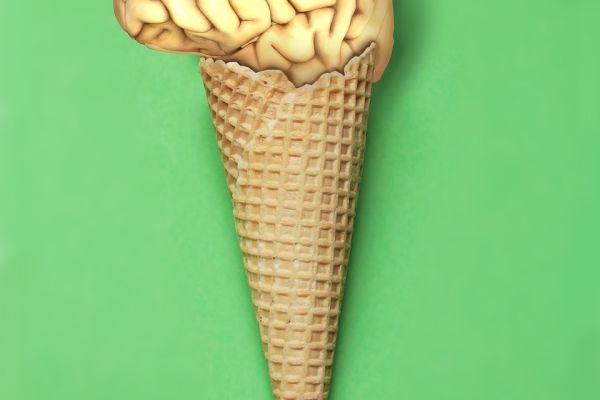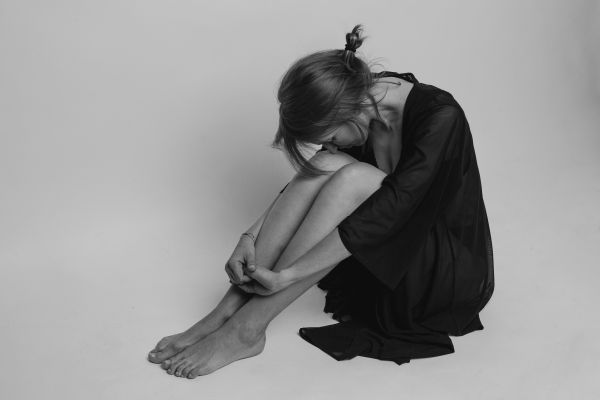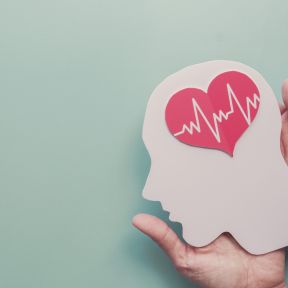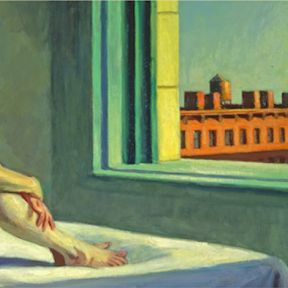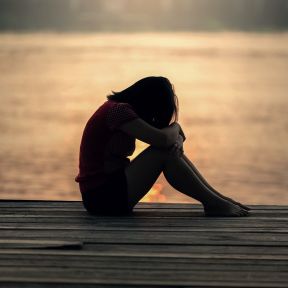Signs and Symptoms of Depression
Everybody gets depressed sometimes, typically in response to events or experiences in which goals go unmet and expectations are dashed, but such reactions tend to be short-lived. Depression is regarded as a disorder when low mood and other symptoms persist for more than two weeks. Mood dysregulation revealed by unrelenting sadness may be the sign most associated with depression, but the disorder can be reflected in impaired functioning in almost every system of the body, from sexual desire to pain perception.
On This Page
- What are the major signs of depression?
- I feel hopeless and empty. Am I depressed?
- Why do I have no interest in sex?
- Can depression sometimes show up as agitation?
- What does it mean to be clinically depressed?
- How does depression differ from sadness?
- How does depression differ from grief?
- How long do episodes last?
- What is the course of depression?
- At what age are people most likely to get depressed?
- Are people more prone to depression later in life?
- Do children get depressed?

Because depression is complex and affects so many systems of the body, it has many manifestations, and which ones are most prominent can vary from person to person. According to the latest edition of Diagnostic and Statistical Manual of Mental Disorders, widely used as a roadmap to diagnosis, depression can be considered an illness when at least five symptoms occur together for at least two weeks. Symptoms include:
• Feelings of sadness, emptiness, or hopelessness
• Irritability, angry outbursts, or low frustration tolerance
• Loss of interest in or ability to enjoy usual activities, from sex to sports
• Sleep disturbance, whether inability to sleep (insomnia) or sleeping too much (hypersomnia)
• Fatigue and lack of energy; everything feels effortful
• Appetite disturbance, including loss of interest in eating and weight loss or overeating and weight gain
• Anxiety, agitation, and restlessness
• Slowed thinking, moving, or talking
• Feelings of worthlessness and guilt, a focus on past failure, self-blame
• Difficulty concentrating, remembering things, and making decisions
• Recurring thoughts of death
• Physical pain such as headaches or back pain that has no clear cause.
In many cases, yes. One of the hallmarks of depression is that it turns thinking relentlessly negative; it distorts cognition, which further depresses mood. Not only are experiences robbed of pleasure, your own thoughts tell you that you can’t do anything well and can’t change. People come to believe that they will always be this way, that situations will always end badly, and there is no way out of such a mental prison. But thoughts are not facts, and the distorted cognitions of depression are changeable through psychotherapy.
No one is in the mood for sex all the time, but a persistently low sex drive is a common sign of depression in both men and women. Just as the disorder affects appetite for life in general and for food more specifically, it dampens the appetite for sex. Low libido is also influenced by the general lethargy and inability to feel pleasure that are hallmarks of depression; what's more, it can both reflect and intensify relationship difficulties depressed people experience.
Although depression is most often associated with devitalization and typically shows up as a dampening of responsiveness and behavior, it can sometimes manifest as agitation and restlessness. In some studies, as many as one third of people with major depressive disorder had symptoms of agitation and physical restlessness. They may range from frequent wringing of the hands and shuffling of the feet to angry outbursts, as well as difficulty sitting still.
The term depression is used in common conversation to cover a wide range of mood disruption, from momentary sadness to prolonged hopelessness. Clinical depression is a medical term that is reserved for the more serious forms of the disorder, also called major depression. People who are clinically depressed experience a number of symptoms In addition to unremitting sadness or disinterest—such as sleep problems and appetites disturbance—and their thinking is so relentlessly negative that their ability to carry out everyday functions is seriously impaired, and they cannot envision a brighter future.
Sadness is a normal response to disappointment, setbacks, and losses. Depression is not. Depression is accompanied by sadness, but it is distinguished by the presence of other symptoms as well. It descends like a pervasive cloud, often without any obvious trigger, robbing energy, motivation, meaning, and a sense of self-worth. It endures for weeks or months. Sadness turns people inward, encouraging them to find meaning or other accommodation, and then remits. Depression requires treatment; sadness does not.
Grief is a normal response to loss of any kind, involving both sadness and longing for what is missing and, often, disinterest in one’s surroundings. And while acute grief, like depression, can interrupt appetite and sleep and create feelings of guilt, it is unlike depression in that it comes in waves, cresting and then subsiding. Typically, grief does not impair the capacity to remember happy experiences shared with the deceased or for laughter in recounting them. People who are depressed usually withdraw from social contact; the grieving often welcome contact.
Depression is typically a recurrent disorder in which episodes of illness can last for weeks or many months. Researchers find that the median duration of a first episode of depression is 17.3 weeks, or about four months. There is a very high probability of recovery in the early weeks of a depressive episode. The severity of a first episode of depression —essentially the degree to which the body is functionally impaired, or in shutdown mode—seems to exert some influence on the likelihood of a recurrent episode.
Depression is a recurring disorder, and about 50 percent of people who have one episode of depression have another. Studies show that the number of life stressors a person experiences influences the likelihood of recurrence. They also show that likelihood of recovery declines the longer that episodes last—a potent argument for seeking prompt treatment. There is some evidence that depression itself changes the brain, diminishing the ability to form new nerve cell connections and decreasing brain reserves, thereby curtailing the capacity for recovery.
Depression is most likely to affect people in mid-life, between the ages of 45 and 65. Nevertheless, evidence indicates that people are experiencing an episode of clinical depression earlier in life than was previously the case. There is great concern that those in Generation Z (born between 1995 and 2015) are especially prone to depression and anxiety because they have been overprotected by parents and shielded from opportunities to develop skills for coping with life’s inevitable stresses.
Depression is not a normal part of aging; the disorder is less common among older adults than among younger adults, but is nevertheless a serious problem, as late-life depression is more often associated with suicide, self-neglect, and cognitive decline. When depression does occur among those over age 60, it is more likely than not to be a first episode. People with late-onset depression are less likely than others to have a family history of depression; there’s evidence that curtailment of daily activities is a significant precipitating factor.
Children can get depressed, and research has documented clinical depression in children as young as age 3. The disorder tends to show up differently in children than in adolescents or adults. The most common symptom is extreme irritability. Other important signs are periods of social withdrawal, sadness or decreased ability to experience pleasure (anhedonia), and feelings of guilt. Depression in children may be a response to problems within the family, but it also may create problems in how a family functions. Some observers believe that the occurrence of depression in children is related to the decline of play.


